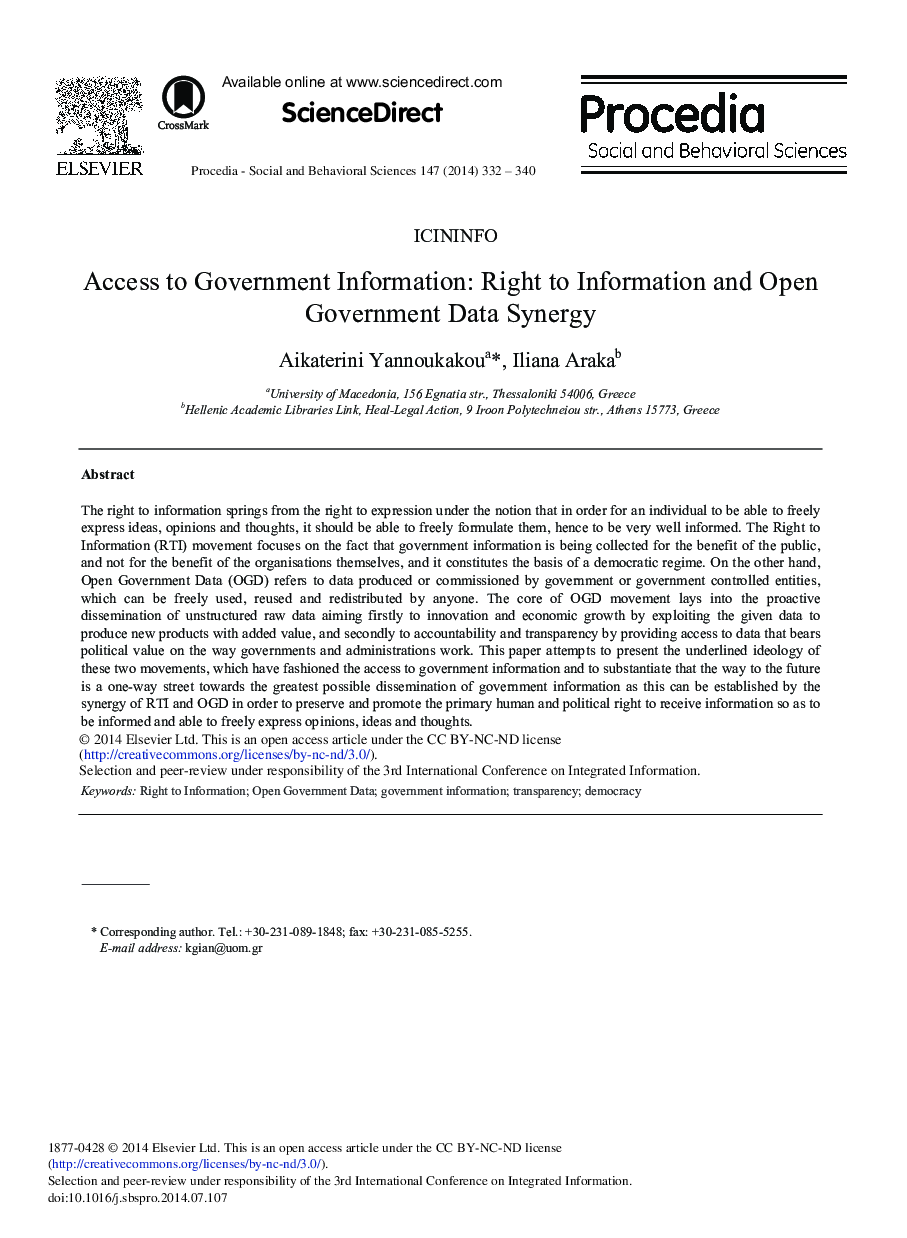| Article ID | Journal | Published Year | Pages | File Type |
|---|---|---|---|---|
| 1114763 | Procedia - Social and Behavioral Sciences | 2014 | 9 Pages |
The right to information springs from the right to expression under the notion that in order for an individual to be able to freely express ideas, opinions and thoughts, it should be able to freely formulate them, hence to be very well informed. The Right to Information (RTI) movement focuses on the fact that government information is being collected for the benefit of the public, and not for the benefit of the organisations themselves, and it constitutes the basis of a democratic regime. On the other hand, Open Government Data (OGD) refers to data produced or commissioned by government or government controlled entities, which can be freely used, reused and redistributed by anyone. The core of OGD movement lays into the proactive dissemination of unstructured raw data aiming firstly to innovation and economic growth by exploiting the given data to produce new products with added value, and secondly to accountability and transparency by providing access to data that bears political value on the way governments and administrations work. This paper attempts to present the underlined ideology of these two movements, which have fashioned the access to government information and to substantiate that the way to the future is a one-way street towards the greatest possible dissemination of government information as this can be established by the synergy of RTI and OGD in order to preserve and promote the primary human and political right to receive information so as to be informed and able to freely express opinions, ideas and thoughts.
